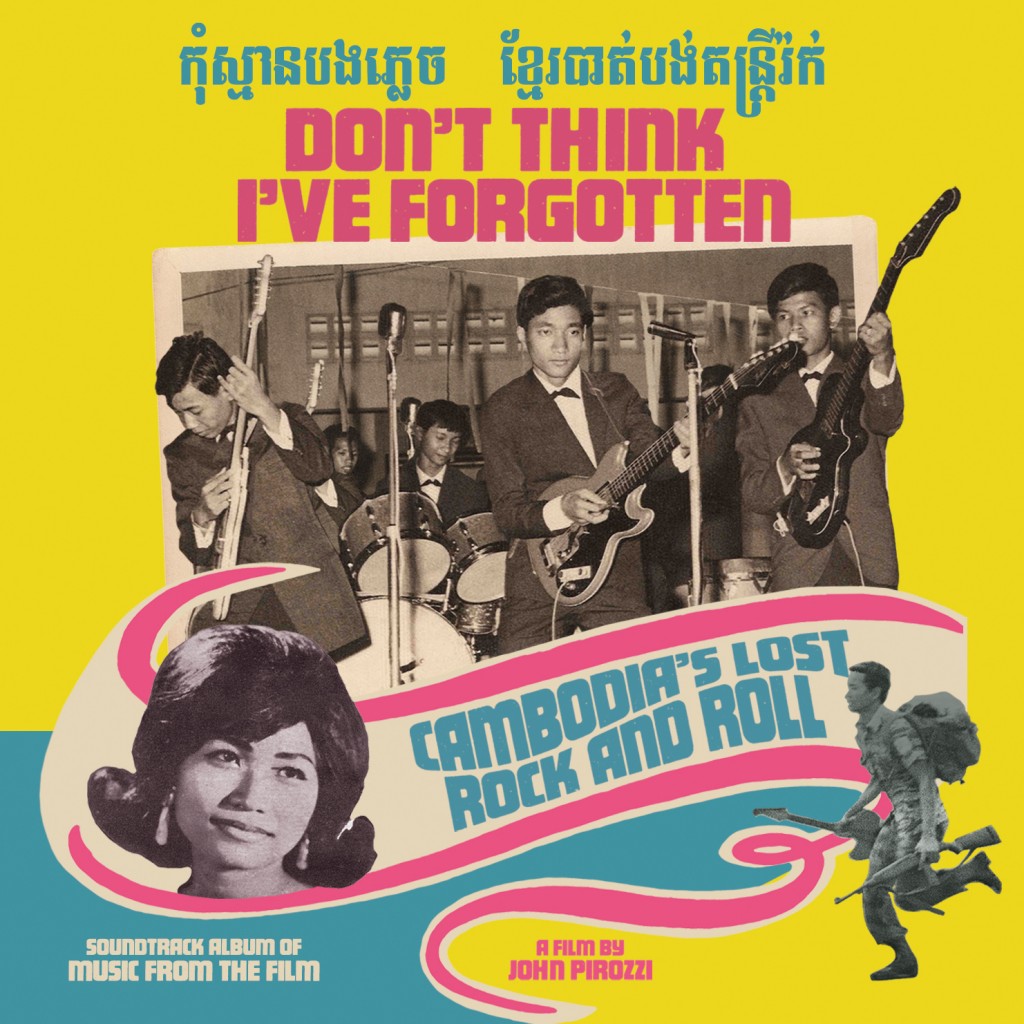Don’t Think I’ve Forgotten: Cambodia’s Lost Rock and Roll (soundtrack)
These are great days for compilations of popular musics from around the world that have gone overlooked by musicologists’ reverence for traditional forms and millennials’ gravitation toward a global pop beat. However, the soundtrack to a powerful new documentary has raised the bar for this genre. Anthropological fascination meets historical urgency in Don’t Think I’ve Forgotten: Cambodia’s Lost Rock and Roll, a film by John Pirozzi that revisits the swinging, eclectic pop music recorded and performed in Phnom Penh between independence and the Khmer Rouge.
Under the Sihanouk monarchy (1958-1970), Cambodia’s capital Phnom Penh was a culturally energetic city that soaked up a wide range of music befitting its unaligned status in the Cold War. Musicians studied the sounds of early 60s British and French rock, Afro-Cuban mambo, and American surf-, folk- and psychedelic rock; even Santana was popular for a time. In trying to copy these sounds for domestic listeners, Phnom Penh musicians inevitably put their own imprint on the music, most audibly in the vocalists’ distinctive vibrato. If you’ve ever wondered how Tchaikovsky’s “Swan Lake Suite” might sound set to a skirt-shaking a go go beat, check out Chhoun Malay’s infectious “The Story of My Love.” Like many tracks here, it illustrates how Cambodian rock and roll of this era captured the exuberance felt in cities like London, Paris, Los Angeles and New York.
From the surf-inspired twang of the group Baksey Cham Krong to the fuzzed-out garage rock of Drakkaro, several Western styles are featured on Don’t Think I’ve Forgotten. The songs’ charm lies a good deal in their translation, but don’t think these musicians didn’t commit to the demands of these genres. On “Dying Under a Woman’s Sword,” long-haired Yol Aularong summons some blood-curdling screams that would give Roky Erikson a run for his money. Sinn Sisamouth is well represented on this compilation, his fluency in several lounge styles suggesting he was Phnom Penh’s own Bobby Darin, but it’s the female singers who really steal the show: Ros Serey Sothea, Chhoun Malay, Huoy Meas, Sieng Vannthy, and (on “There’s Nothing to be Ashamed of”) the sassy Pen Ras.
It’s not a spoiler to reveal that very few of the musicians featured on the soundtrack, not to mention their families, neighbors, and countrymen, survived the unthinkable atrocities of the Khmer Rouge regime. If the coming of the killing fields weighs heavily over the swinging 60s depicted in Don’t Think I’ve Forgotten, the soundtrack conveys only the joy and freedom that flourished in Phnom Penh just before. We can’t ask art to transcend history’s traumas, but we can nonetheless honor the art and lives of these musicians by sharing their celebrations archived in this remarkable album.
The soundtrack to Don’t Think I’ve Forgotten is out now on Dust to Digital.





